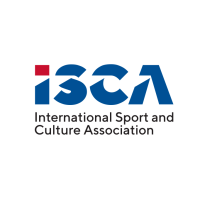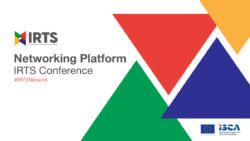IRTS : a growing network in the field of sport and refugees
On 17 November, Sport and Citizenship took part in the “Networking Platform IRTS conference” organised by ISCA (International Sport and Culture Association). Sport and Citizenship not only attended the event but also directly participated with its Head of European Affairs Kiera Wason-Milne, who was invited to speak and share her knowledge and experience as an expert in the field of sport and refugees.

The conference was the occasion to gather European experts in the field of refugees and sport and to officially present the IRTS (Integration of Refugees Through Sport) Platform that aims to become the baseline platform that uses sport as an active tool in welcoming refugees. Antoaneta Angelova-Kraseva (Director for Innovation, International Cooperation & Sport at DG EAC, European Commission) opened the conference underlying the role of the Erasmus+ programme since 2014 in promoting social inclusion and equal opportunities. Social inclusion will remain one of the priorities for the Commission in the shape of the four pillars of inclusion: Regulation, Participation and Access, and Funding. Nick Sore (Senior Refugee Sport Coordinator, UNHCR) held the keynote speech by putting on the table obstacles and challenges sport and the reception of refugees must face during the COVID-19 pandemic. The first panel discussion outlined positive aspects and good practices the international cooperation between sport stakeholders can deploy for supporting the refugees’ cause through sport.
The four thematic workshops aimed to challenge the audience with interactive discussions on key aspects of integrating refugees through sport- including collaborations between sport and non-sport organisations, the training of sport trainers, empowering girls and women, and the integration in clubs and local communities.

Finally, the last panel discussion focused on the future of the IRTS Networking Platform. From a grassroots perspective George Springborg (StreetFootballWorld) highlighted it is paramount to focus not just on the European level but also one the international one, ensuring that the work on the ground will remain the first goal. Furthermore, our Head of European Affairs Kiera Wason-Milne drove the attention to the new digital environment and the COVID-19’s insidiousness that we face today. It is, therefore, wise to take a step back and rethink our ways of communicating and tackling new challenges brought forward by the inclusion of refugees. She also stated that the real strength of the IRTS network is its heterogeneousness and variety (almost 80 stakeholders in the network) that prompts legitimacy and puts actors in the position of raising awareness and advocating with more possibilities to succeed. However, it will be crucial to enlarge the cooperation to other domains that can provide solutions from alternative angles and perspectives.
The IRTS Network aims to consolidate itself as a pillar and as the ‘go-to hub’ for the inclusion of refugees through sport. Due to our expertise in the field through our FIRE project, we are delighted to be part of this growing network with which we share values and goals. We truly believe that sport can play an efficient role in guarantee a safe and constructive inclusion for refugees in Europe. We are therefore committed to the IRTS network as a bottom-up initiative that provides concrete actions and strategies to a European challenge that is still far from its end.










 MEMBERSHIP
MEMBERSHIP CONTACT
CONTACT FACEBOOK
FACEBOOK